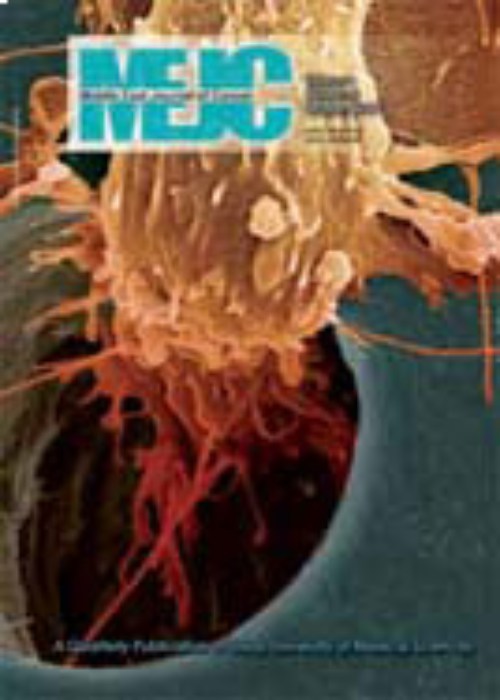FLT3 Mutation as a Significant Prognostic Marker in de novo Acute Myeloid Leukemia Patients: Incidence, Distribution and Association with Cytogenetic Findings in a Study from South India
Author(s):
Abstract:
Background
Fms-like tyrosine kinase 3 is a tyrosine kinase receptor that plays anJavascript: FormatThis (''B'') important role in proliferation and differentiation of hematopoietic stem cells. Internal tandem duplication and tyrosine kinase domain mutation are the two most common types of fms-like tyrosine kinase 3 mutationsfrequently reported in acute myeloid leukemia associated with pathogenesis of this disease. The present study investigates the prevalence and distribution pattern in different acute myeloid leukemia sub- and cytogenetic groups، the association with clinical parameters and the prognostic importance of these mutations in acute myeloid leukemia patients from South India. Methods
Mutation analysis was performed in 276 de novo acute myeloid leukemia patients by polymerase chain reaction restriction fragment length polymorphism using specific restriction enzymes followed by sequencing to confirm the mutations. Kaplan Meier survival analysis was performed to detect the prognosis. Results
Fms-like tyrosine kinase 3 internal tandem duplication mutations were observed in 20%، tyrosine kinase domain mutation in 4% and dual mutations in 0. 3% of the analyzed cases. The internal tandem duplication mutations ranged from 15-107 nucleotides with the majority at the juxta membrane domain of the receptor. Three types of tyrosine kinase domain point mutations were identified: D835Y، D835H and D83 V. We observed a significant association between fms-like tyrosine kinase 3 mutations and increased WBC and LDH counts (P<0. 001) and blast percentage but not with age، gender and FAB subtypes. A significant association with normal karyotype was observed for the mutants (P=0. 002). Survival analysis revealed that the fms-like tyrosine kinase 3 gene mutation was a negative prognostic marker for acute myeloid leukemia patients. The risk stratified analysis showed the mutation to be a risk factor for the intermediate karyotype group، especially for those with normal cytogenetics. Conclusion
Our results indicate that the presence of an fms-like tyrosine kinase 3 mutation can serve as a valuable prognostic marker in this subgroup of patients، allowing stratification for risk-directed therapy.Language:
English
Published:
Middle East Journal of Cancer, Volume:5 Issue: 4, Oct 2014
Page:
185
magiran.com/p1318116
دانلود و مطالعه متن این مقاله با یکی از روشهای زیر امکان پذیر است:
اشتراک شخصی
با عضویت و پرداخت آنلاین حق اشتراک یکساله به مبلغ 1,390,000ريال میتوانید 70 عنوان مطلب دانلود کنید!
اشتراک سازمانی
به کتابخانه دانشگاه یا محل کار خود پیشنهاد کنید تا اشتراک سازمانی این پایگاه را برای دسترسی نامحدود همه کاربران به متن مطالب تهیه نمایند!
توجه!
- حق عضویت دریافتی صرف حمایت از نشریات عضو و نگهداری، تکمیل و توسعه مگیران میشود.
- پرداخت حق اشتراک و دانلود مقالات اجازه بازنشر آن در سایر رسانههای چاپی و دیجیتال را به کاربر نمیدهد.
In order to view content subscription is required
Personal subscription
Subscribe magiran.com for 70 € euros via PayPal and download 70 articles during a year.
Organization subscription
Please contact us to subscribe your university or library for unlimited access!


